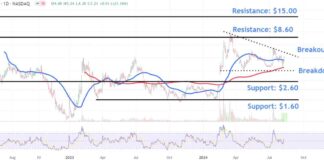OPEC Heavyweights Violating Production Targets
The Organisation of the Petroleum Exporting Countries (OPEC) and its allies, a group that produces 40% of the world’s crude, aims to maintain high and stable oil prices. However, recent developments have shown that some OPEC heavyweights are not adhering to their agreed production targets, leading to concerns about the stability of global oil markets.
Violation of Targets
Despite OPEC’s efforts to control oil production and prices, some of its key members have been blatantly violating their agreed-upon production targets. This violation has led to an oversupply of crude oil in the market, causing prices to remain stagnant despite geopolitical tensions and conflicts in oil-producing regions.
One of the major violators of production targets is Saudi Arabia, the de facto leader of OPEC. The kingdom has consistently exceeded its production limits, flooding the market with excess oil and putting pressure on prices. This strategy, aimed at maintaining market share and exerting dominance over other oil-producing nations, has had detrimental effects on the global oil market.
Impact on Oil Prices
The violation of production targets by OPEC heavyweights has had a significant impact on oil prices worldwide. Despite escalating tensions in regions like Gaza and the recent death of Iran’s president, oil prices have remained relatively stable, hovering around $82 a barrel. This stability can be attributed to the oversupply of oil in the market, driven by the failure of OPEC members to comply with their agreed production quotas.
The lack of discipline among OPEC heavyweights in adhering to production targets has created uncertainty and volatility in the oil market. Investors and consumers alike are left questioning the reliability of OPEC’s ability to control oil prices and ensure stability in the global energy sector.
Global Implications
The violation of production targets by OPEC heavyweights has far-reaching implications beyond just oil prices. The stability of the global economy, geopolitical relations, and energy security are all at risk due to the unchecked actions of key oil-producing nations.
For oil-importing countries, the fluctuation in oil prices caused by OPEC’s non-compliance with production targets can have a direct impact on their economies. Higher oil prices can lead to increased costs for businesses and consumers, potentially leading to inflation and economic instability.
Furthermore, the geopolitical implications of OPEC’s actions cannot be understated. The dominance of certain oil-producing nations in the market can give them undue influence over global affairs, leading to increased tensions and conflicts between nations vying for control over valuable energy resources.
Conclusion
In conclusion, the violation of production targets by OPEC heavyweights poses a significant threat to the stability of the global oil market. The unchecked actions of key oil-producing nations, such as Saudi Arabia, have led to oversupply and stagnant prices, creating uncertainty for investors and consumers alike.
It is imperative that OPEC members adhere to their agreed production quotas to ensure stability and predictability in the oil market. Failure to do so could have dire consequences for the global economy, energy security, and geopolitical relations. Only through cooperation and adherence to established targets can OPEC truly fulfill its mandate of maintaining high and stable oil prices for the benefit of all stakeholders.

















